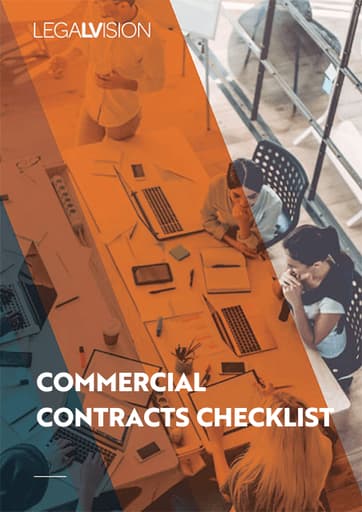In Short
- Written contracts should clearly outline each party’s rights, obligations, and key terms to prevent disputes.
- Use simple, plain English; ensure the correct parties and details are included; and include clauses such as confidentiality and dispute resolution.
- Proper execution and thorough proofreading help avoid errors, ambiguity, and enforceability issues.
Tips for Businesses
Have a lawyer review your contracts to ensure clarity, accuracy, and compliance with relevant laws. Verify that the correct parties are involved, key terms are complete, and confidential information is properly protected. Avoid legal jargon, proofread carefully, and ensure the contract is correctly signed to minimise risks and prevent costly disputes.
On this page
- 1. Is the Contract in Writing?
- 2. Is the Contract Expressed in Simple English?
- 3. Are You Contracting With the Correct Party?
- 4. Are the Details Correct?
- 5. Is There a Confidentiality Clause?
- 6. Have the Parties Correctly Executed the Contract?
- 7. Have You Read Through the Document for Errors?
- Key Takeaways
- Frequently Asked Questions
Businesses regularly enter into contracts for various goods and services. Written agreements set out the parties’ expectations as well as their rights and obligations. In reality, most small to medium businesses have limited resources and turn to draft their own legal documents. This often leads to poorly drafted contracts and confusion about what the contract actually enforces, which inevitably results in messy disputes. Therefore, it is a good idea for a lawyer to review your business agreements to ensure you protect your best interests. In this article, we set out some quick tips on what to look for when reviewing a commercial contract.

1. Is the Contract in Writing?
Verbal agreements can legally bind parties, but they are often difficult to enforce. You can avoid the headache and costs of litigating a contractual dispute by writing down all key terms. A lawyer can assist you in determining whether the contract contains all the terms parties agreed to during the negotiation phase.
2. Is the Contract Expressed in Simple English?
Avoid using archaic terminology and convoluted sentences. Outdated legalese such as ‘inter alia’, ‘aforementioned’, and ‘hereinabove’ should be left where it belongs – in the past. A well-drafted contract should use short, clear, simple sentences.
Continue reading this article below the form3. Are You Contracting With the Correct Party?
Although this seems straightforward, a surprising number of parties get this wrong. Occasionally, parties may also incorrectly identify their own company. Ask yourself:
- Does the person I am negotiating with have the power to decide?
- Is this person the right entity (i.e. a company vs a private individual)?
4. Are the Details Correct?
It is important that a contract spells out all the details of the parties’ arrangement, such as:
- performance obligations;
- payment terms;
- right of termination;
- dispute resolution (including any alternative dispute resolution); and
- remedies in the event of a breach.
The relevant State or Territory is critical when contracting with an individual or company based interstate or overseas.

Reviewing contracts across your business? Download this free checklist to ensure clear terms, fair risk allocation and stronger commercial outcomes
5. Is There a Confidentiality Clause?
When a party enters into a contract with another business or individual, they will inevitably disclose or exchange confidential information. Unless there are special circumstances, it is sensible to impose ‘mutual obligations of confidence’. In doing so, parties can ensure that any information they disclose throughout the course of the relationship is not shared with third parties or used for ulterior purposes.
6. Have the Parties Correctly Executed the Contract?
A contract is executed (i.e. effective) when a person with authority to sign the agreement does so. If an individual is the contracting party, the person with authority is the individual. If the contracting party is a company, the authorised person is either a director or agent with express authority to sign on behalf of the company.
7. Have You Read Through the Document for Errors?
Importantly, parties should ensure all cross-referencing is correct. Incorrectly cross-referenced paragraphs can give rise to ambiguity and potentially make the clause unenforceable. Also, proofread your final agreement to ensure it is free of errors. A small typo in a crucial clause, such as a missing comma, can be detrimental.

Reviewing contracts across your business? Download this free checklist to ensure clear terms, fair risk allocation and stronger commercial outcomes
Key Takeaways
Ensure that your agreement withstands the scrutiny of the other party and, if necessary, the courts. It is prudent to have a lawyer review and, if required, redraft your contract. This manages your business’ risk and prevents issues from escalating into expensive legal disputes.
If you need help with your commercial contracts, our experienced contract lawyers can assist as part of our LegalVision membership. For a low monthly fee, you will have unlimited access to lawyers to answer your questions and draft and review your documents. Call us today on 1300 544 755 or visit our membership page.
Frequently Asked Questions
A confidentiality agreement outlines the terms under which sensitive information will remain privileged and private. It is helpful to ensure that you can hold another party legally responsible if they reveal confidential information to unauthorised individuals.
Legalese refers to overly legal terminology, such as ‘inter alia’, ‘aforementioned’, and ‘hereinabove’. You should avoid it as it can make your contract overly complex and convoluted.
We appreciate your feedback – your submission has been successfully received.











